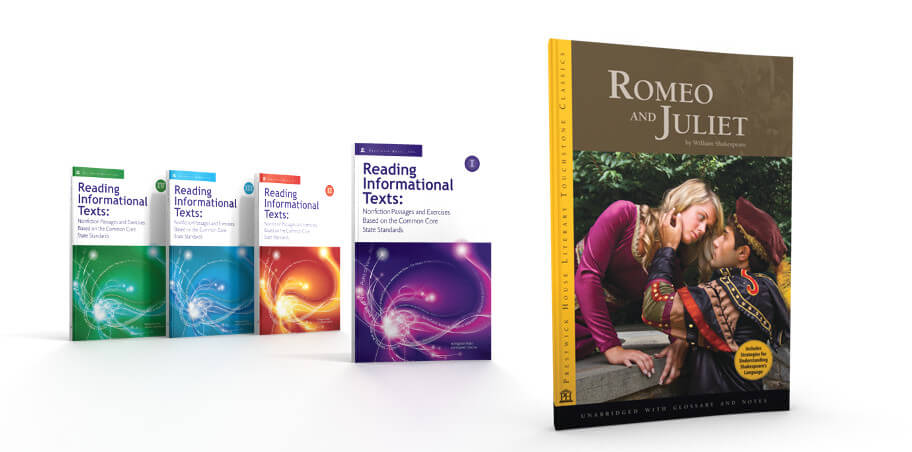
Because the Common Core State Standards require students to read more nonfiction in school, some fear that the ELA classroom will lose its focus on literature and instead become a tedious slog through dry informational texts.
That doesn't have to happen! One way to avoid this future is to use informational texts to support the literature you use in your classroom. Here are a few informational texts you can use as supplements when teaching Romeo and Juliet.
The Globe Theater
This collection of videos (part of the Shakespeare Uncovered series) from PBS Learning Media is all about the Globe Theatre's history and impact. The second video, titled "The Globe is the Stage for Shakespeare" is particularly useful, as it discusses the impact of the audience and the Globe's design on performances of Shakespeare's works.
"The Visual Artistry of Romeo and Juliet"
This critical essay speaks to the visual impact of Romeo and Juliet, using the play's introduction to kick off the author's argument: Romeo and Juliet is an especially visual play for the time, and it marries words and stage actions in a way that intensifies the effects of both on the audience.
The essay is available here, for free, but you need to create a JSTOR account (also free!) to read it.
The Poetics of Aristotle
Aristotle's Poetics discusses writing in several genres, but it's Aristotle's opinions about dramatic works that will be most relevant to students analyzing Romeo and Juliet. The Poetics was one of the first, if not the first, works to examine literature as an art form and was a major influence on literary theory.
Aristotle had quite a bit to say about tragedy and the qualities that make a good tragedy. Your students could read these sections of Poetics and have some great discussions: Does Romeo and Juliet adhere to Aristotle's ideas? Is Aristotle's definition of a tragedy still relevant for works being produced today?
This can lead to comparing Romeo and Juliet to other works of tragedy, including more contemporary works like Death of a Salesman, and examining them through the lens of Aristotle's Poetics. Examining more tragedies and questioning whether they meet Aristotle's requirements can only lead to a fuller understanding of what makes tragedies tick.
Students can read the Poetics here. Aristotle begins dissecting the genre of tragedy in section VI, but the previous sections offer valuable tidbits of information about both tragedy and epic poetry.